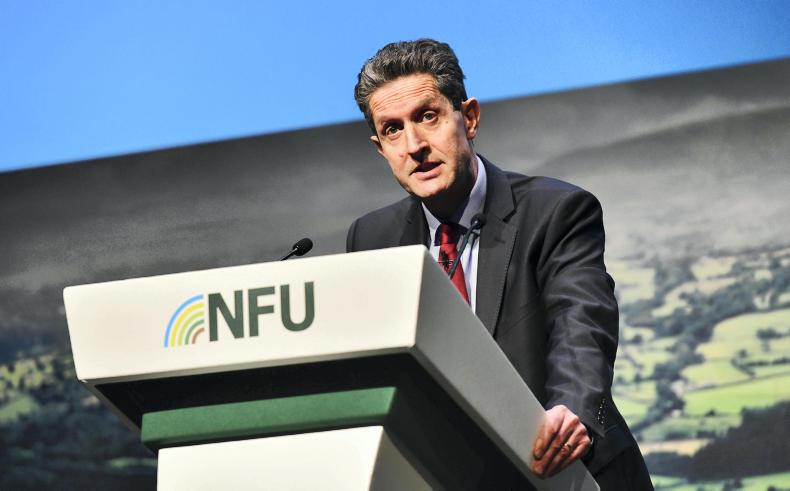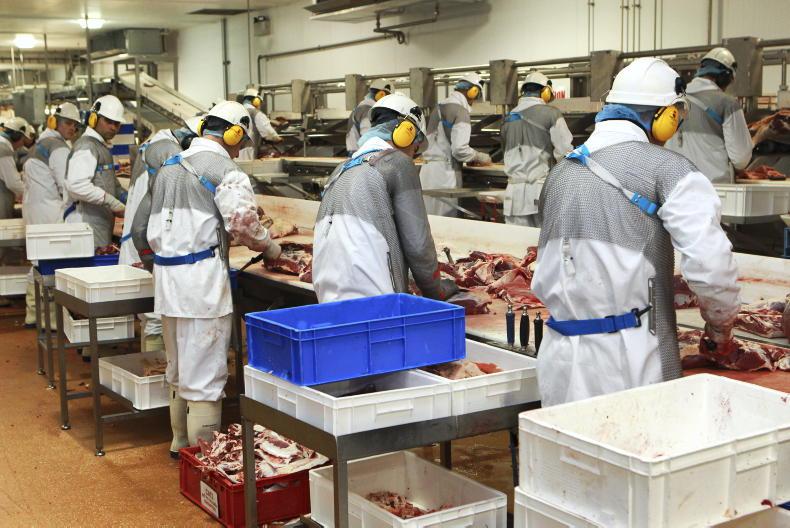Agriculture in the UK is not contributing to global warming, a leading climate scientist from the University of Oxford has said.
Speaking in Birmingham last week, Professor Myles Allen insisted that the current system used for comparing the effect of different greenhouse gases on global temperatures was “not fit for purpose”.
He said that the carbon dioxide equivalence (CO2e) system does not take in account the different global warming effect of the greenhouse gas methane, which is emitted from ruminant livestock.
Methane breaks down in the atmosphere after around 10 years, whereas carbon dioxide, which is emitted from burning fossil fuels, remains for centuries.
Methane does not behave like carbon dioxide. It does not accumulate in the climate system the way carbon dioxide does
“Methane does not behave like carbon dioxide. It does not accumulate in the climate system the way carbon dioxide does, so we don’t actually need to get methane emissions to net zero for it to stop causing global warming,” Allen maintained.
“The CO2e system does not reflect the actual impact of methane on global temperature,” he told delegates at the National Farmers’ Union (NFU) conference.
His research has shown that when methane emissions from a source (such as the UK cattle herd) are reducing, its effect on global warming is significantly underestimated in the CO2e accounting system.
This is the case for methane emissions from UK agriculture, as total cattle numbers in the UK peaked in 1974 at 15.2m and have since reduced by over 36% to 9.6m.
The CO2e system does not reflect the actual impact of methane on global temperature
“As far as your greenhouse gases are concerned, because of the reduction in methane emissions from UK livestock over the past 30 years, UK agriculture as a whole has caused global cooling,” Allen said.
Researchers at the University of Oxford have developed a new system for comparing the global warming effect of different greenhouse gases. It is based on the change in methane emissions over a 20-year period, whereas the current CO2e system only focuses on emissions for the current year.
“You need to communicate to policy makers that this is not complicated, we can do it right and we can therefore make a fair assessment of the contribution of livestock farming to global temperature,” Allen said.
Greenhouse gas accounting systems compared
The current greenhouse gas accounting system (GWP100) is based on multiplying methane emissions for a single year by 28 to get a carbon dioxide equivalence (CO2e) value.
The system proposed by the Oxford researchers (GWP*) involves multiplying current year methane emissions by 112, then multiplying methane emission from 20 years ago by 105, and then subtracting the two values.
“If you have had a stable herd for the past 20 years, that is worth only seven tonnes of CO2e per tonne of methane generated from your herd, rather than 28, so you were being overcharged by a factor of four,” Professor Myles Allen said.
Read more
Methane from fossil fuels ‘vastly underestimated’ and much higher than cattle
Small cuts to methane can have big climate impact
Agriculture in the UK is not contributing to global warming, a leading climate scientist from the University of Oxford has said.
Speaking in Birmingham last week, Professor Myles Allen insisted that the current system used for comparing the effect of different greenhouse gases on global temperatures was “not fit for purpose”.
He said that the carbon dioxide equivalence (CO2e) system does not take in account the different global warming effect of the greenhouse gas methane, which is emitted from ruminant livestock.
Methane breaks down in the atmosphere after around 10 years, whereas carbon dioxide, which is emitted from burning fossil fuels, remains for centuries.
Methane does not behave like carbon dioxide. It does not accumulate in the climate system the way carbon dioxide does
“Methane does not behave like carbon dioxide. It does not accumulate in the climate system the way carbon dioxide does, so we don’t actually need to get methane emissions to net zero for it to stop causing global warming,” Allen maintained.
“The CO2e system does not reflect the actual impact of methane on global temperature,” he told delegates at the National Farmers’ Union (NFU) conference.
His research has shown that when methane emissions from a source (such as the UK cattle herd) are reducing, its effect on global warming is significantly underestimated in the CO2e accounting system.
This is the case for methane emissions from UK agriculture, as total cattle numbers in the UK peaked in 1974 at 15.2m and have since reduced by over 36% to 9.6m.
The CO2e system does not reflect the actual impact of methane on global temperature
“As far as your greenhouse gases are concerned, because of the reduction in methane emissions from UK livestock over the past 30 years, UK agriculture as a whole has caused global cooling,” Allen said.
Researchers at the University of Oxford have developed a new system for comparing the global warming effect of different greenhouse gases. It is based on the change in methane emissions over a 20-year period, whereas the current CO2e system only focuses on emissions for the current year.
“You need to communicate to policy makers that this is not complicated, we can do it right and we can therefore make a fair assessment of the contribution of livestock farming to global temperature,” Allen said.
Greenhouse gas accounting systems compared
The current greenhouse gas accounting system (GWP100) is based on multiplying methane emissions for a single year by 28 to get a carbon dioxide equivalence (CO2e) value.
The system proposed by the Oxford researchers (GWP*) involves multiplying current year methane emissions by 112, then multiplying methane emission from 20 years ago by 105, and then subtracting the two values.
“If you have had a stable herd for the past 20 years, that is worth only seven tonnes of CO2e per tonne of methane generated from your herd, rather than 28, so you were being overcharged by a factor of four,” Professor Myles Allen said.
Read more
Methane from fossil fuels ‘vastly underestimated’ and much higher than cattle
Small cuts to methane can have big climate impact









SHARING OPTIONS